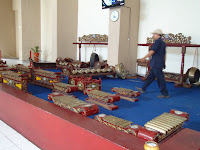The scientific way of life is governed by three broad classes of
interacting motives: curiosity, the desire to know what is going on when one's
back is turned, where one's vision cannot easily reach, or where a situation is
to complex for clear viewing; practicality, the desire that the results of
one's labors, search, and inquiry should 'make a difference', and intrinsic
orderliness, the desire that the masses of accumulated data be reduced to a
comprehensible order and that the complexities which have been unraveled in the
satisfaction of one's curiosity be not again obscured by the imposition upon
the data of an arbitrary order.
There are many consequences
of the recognition of the motivation of the scientist. One can, for example,
readily derive therefrom an appreciation of the importance which the scientist
attaches to the principle of parsimony and one can discern in these terms many
important implications for the requisites of a philosophy of science.
When seen in the light of
these interacting motives, the great controversies which have raged over pure
vs, applied science obscure the real problem. Reduced to the level of the
functioning scientist, the basic question is not one of pure vs, applied
science, but rather of the degree to which the scientist's diverse needs are
satisfied. The so-called 'pure scientist' is not uncorcerned with the broader
systematic aspects of his results, nor is the 'applied scientist, uncorcerned
with the broader systematic aspects of his
work. It is true, of course, that scientific techniques may be adapted to
non-scientific practical purposes, but if the sole concern is with the
practical purposes and not at all with exploring the unknown or contributing to
the siystematization of knowledge, then the adapter may be a high grade
technologist, but he is not a scientist, 'pure' or 'applied'. A physician, for
example, does not become a scientist merely by doing urine analysis.

